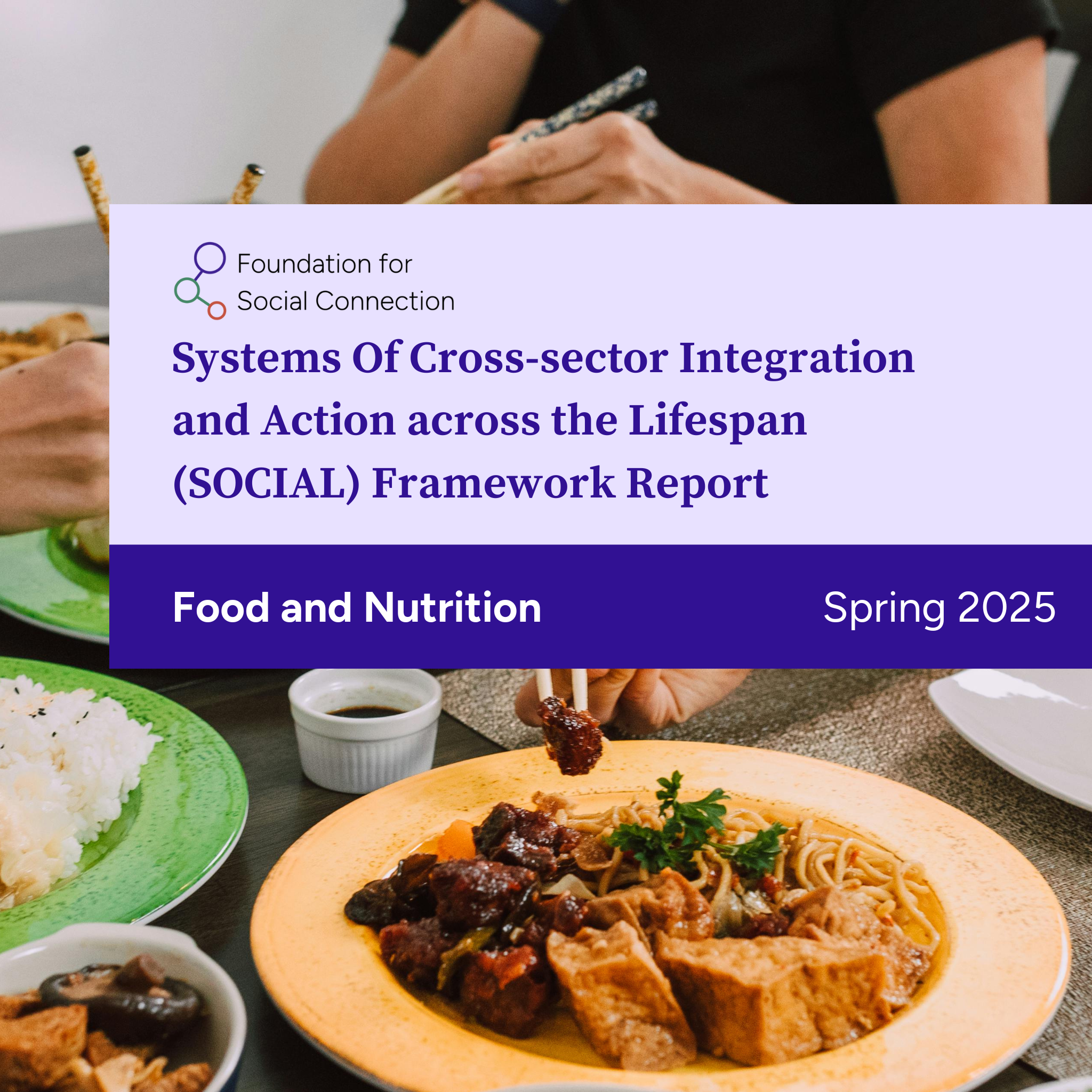

While food and nutrition are often framed around physical health, they are equally powerful tools for building relationships, deepening cultural identity, and strengthening community ties. Across time and traditions, food has brought people together – at kitchen tables, in community centers, through shared gardens, and celebratory gatherings. In this report, we ask readers to consider: what if social connection was woven into the fabric of food and nutrition in society?
This report marks the fifth installment in our SOCIAL Framework series, drawing on the diverse expertise from both academic research and practical experiences to explore evidence-backed strategies for how food and nutrition can act as powerful catalysts for meaningful social connection.
We have developed these reports to be living documents, constantly adapting to new research and policy updates. As such, we welcome your feedback on the report!
Describe and understand the power of food systems as interconnected stakeholders, environments, and processes that shape our lives—including how food is produced, distributed, prepared, and consumed across institutional, community, and informal settings.
Identify how food and nutrition can either support or hinder opportunities for social connection—from the accessibility of food programs, to policies that shape where and how people gather around food.
Apply and learn from promising strategies and examples for increasing social connectedness through food-related built environments—across multiple levels of influence and tailored to the roles of various stakeholders, including public agencies, community-based organizations, and practitioners.
This report explores the opportunities to foster social connection through food and nutrition, which encompasses the full range of systems, environments, programs, and policies involved in the growing, processing, distribution, marketing, preparation, consumption, and disposal of food. Our focus is on how these elements—when designed intentionally—can be leveraged to reduce social isolation and loneliness, and to strengthen social bonds across diverse settings and populations.
In line with the Foundation’s previous SOCIAL Framework reports, this report identifies key stakeholders and promising strategies for fostering social connectedness at various points in the food system. Specifically, it examines how food and nutrition-based strategies can operate across the five socio-ecological levels of influence: individual, interpersonal, organizational, community, and societal. Ultimately, readers will be equipped with specific examples, implementation approaches, and framing language to support research, practice, and investment in social connection within food and nutrition.
In this webinar, we dive into how food systems – spanning everything from production to distribution to consumption – can be intentionally designed to strengthen social bonds across diverse populations and settings.
Featuring a fireside chat with experts who contributed to the report, we discuss actionable strategies and shared insights for advancing social connection through systems change and community engagement.
A brief overview of how the Foundation is putting the Framework into action:
We connect partners from different sectors and levels of influence to support united, multi-sector work.
Through our innovation work, we share evidence-based strategies and learnings with partners who can implement and test approaches shared in the SOCIAL Framework Reports.
Our research informs policy development at our sister organization, The Foundation for Social Connection Action Network